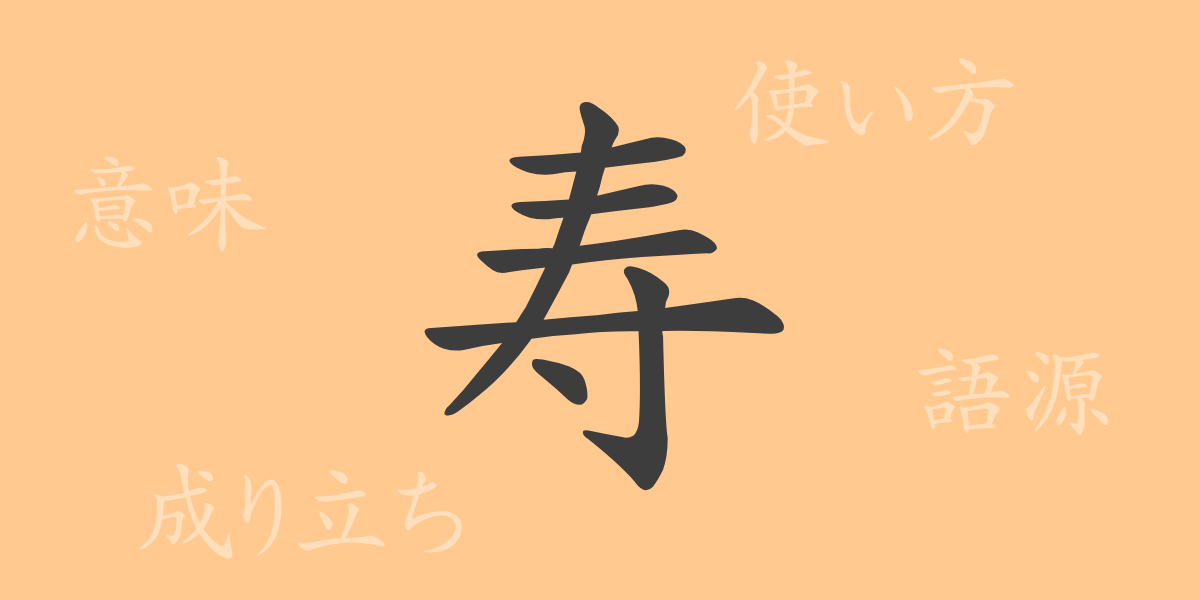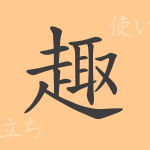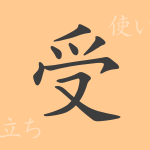Kanji, deeply rooted in Japanese culture, carries rich history and meaning within each character. The kanji “寿(ことぶき)” particularly resonates with the Japanese heart, symbolizing blessings and longevity. This article delves into the charm of the kanji “寿(ことぶき)”, exploring its origins, meanings, and modern usage.
Origin of 寿(ことぶき) (Etymology)
The kanji “寿(ことぶき)” has been used since ancient China to celebrate longevity. Originally written as 壽(ことぶき), it derived from an ideogram representing a hand holding mulberry fruit. Over time, the character simplified to “寿(ことぶき)”. This kanji was introduced to Japan along with the broader transmission of Chinese culture, becoming deeply embedded in Japanese culture.
Meanings and Usage of 寿(ことぶき)
The kanji “寿(ことぶき)” means “longevity” or “lifespan”, commonly used to wish for a long and happy life. It frequently appears in celebrations and ceremonies, displayed on banners and scrolls, symbolizing happiness and good fortune. In Japanese celebratory culture, “寿(ことぶき)” is indispensable.
Readings, Stroke Count, and Radical of 寿(ことぶき)
The kanji “寿(ことぶき)” is cherished for its simplicity and profound meaning.
- Readings: The on’yomi (音読み) is “ジュ”, and the kun’yomi (訓読み) is “ことぶき” or “す”.
- Stroke count: “寿(ことぶき)” consists of 7 strokes.
- Radical: The radical is 宀(うかんむり).
Idioms, Phrases, and Proverbs Using 寿(ことぶき)
Several idioms, phrases, and proverbs include the kanji “寿(ことぶき)”. Here are some examples:
- 長寿(ちょうじゅ): Longevity. It also refers to a person who lives long.
- 寿命(じゅみょう): Lifespan. The duration of a person’s or animal’s life.
- 寿ぐ(ことぶく): To celebrate longevity.
- 寿退社(ことぶきたいしゃ): Resigning from a job due to marriage or other celebratory reasons.
These idioms and phrases are frequently used in daily life, expressing the wish for happiness and long life.
Conclusion on 寿(ことぶき)
The kanji “寿(ことぶき)” is deeply ingrained in Japanese life through its origins, meanings, and usage. As a symbol of blessings and longevity, “寿(ことぶき)” is prevalent in many aspects of life today. This kanji represents a key element of Japanese culture, and the wishes and celebrations it signifies will continue to be cherished by many.

























